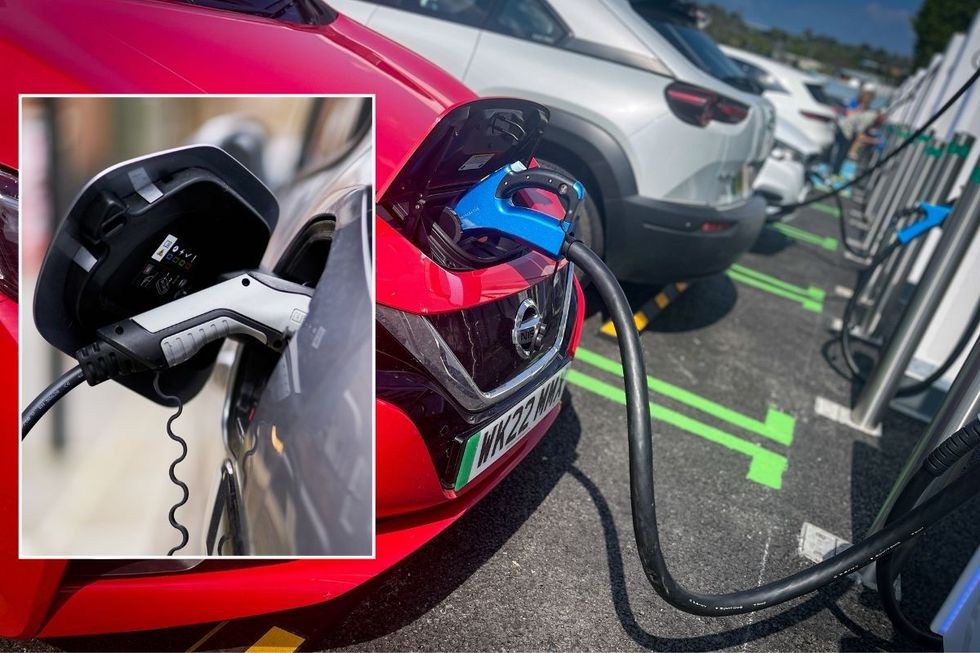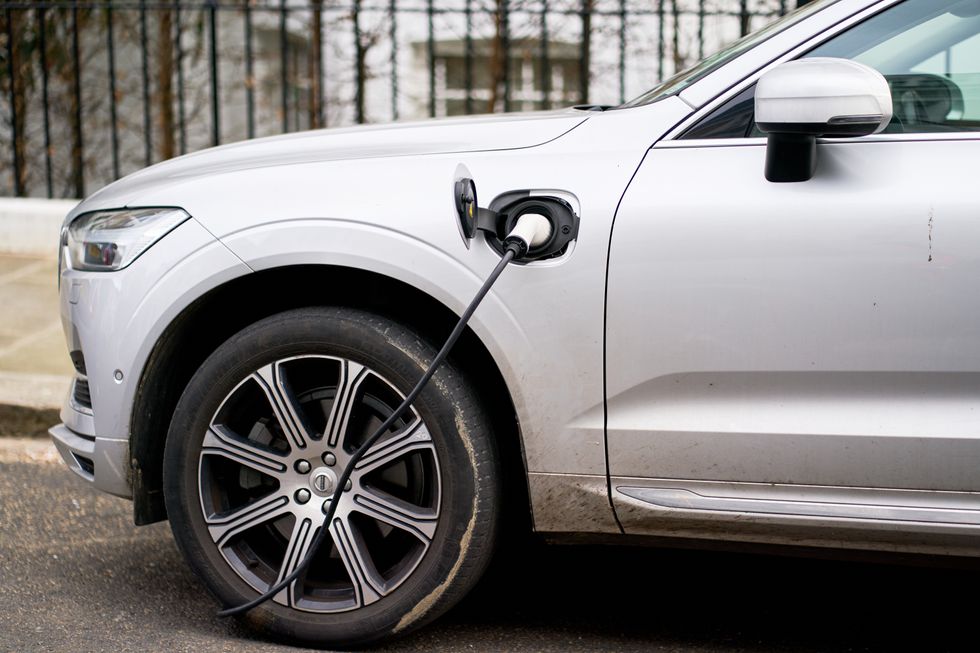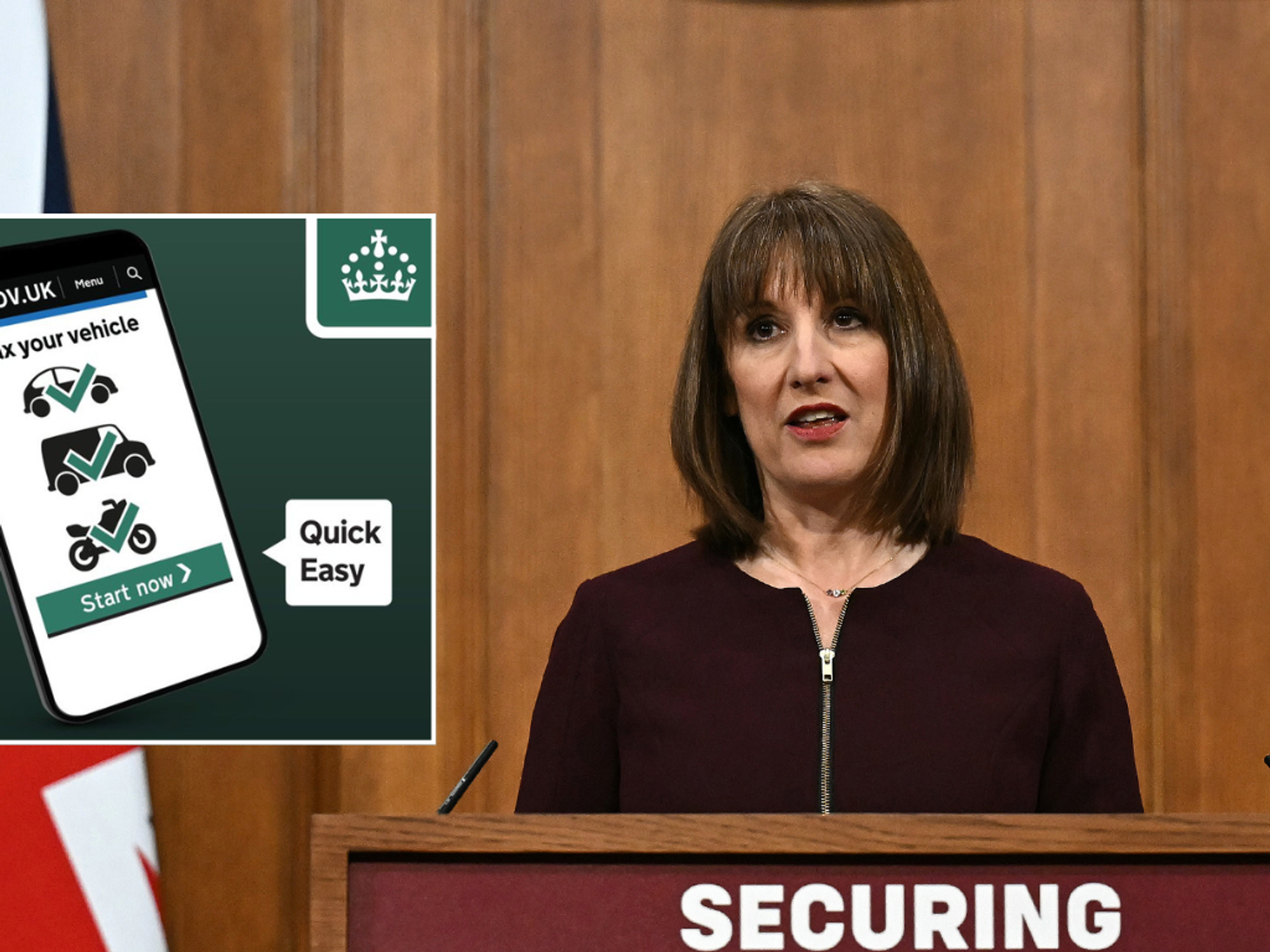Rachel Reeves fails to back drivers by cutting VAT charges which could see millions of drivers punished
WATCH: Rachel Reeves reveals electric car taxes to come into effect from April 1
Electric car owners still face a 20 per cent VAT charge at public charging stations
Don't Miss
Most Read
Trending on GB News
Chancellor Rachel Reeves has failed to announce cuts to VAT on electric charging points, with millions of drivers left in uncertainty as costs continue to rise.
Industry experts and carmakers have been calling for Reeves to cut the VAT on public charging stations from 20 per cent to five per cent in a bid to increase incentives for drivers to switch away from petrol and diesel vehicles.
The need for the cuts comes as the UK pushes forward with its Zero Emission Vehicle mandate, which requires at least 28 per cent of new car sales to be electric by this year before moving to 100 per cent in 2035.
But the car industry has warned that without more support to increase the purchase of electric cars, this target could be missed.
Do you have a story you'd like to share? Get in touch by emailingmotoring@gbnews.uk

Changes to the VAT rate would help put an extra 267,000 electric vehicles onto UK roads
PA/GETTY
By cutting VAT, electric car owners would pay the same amount at a public charging station as they would when charging their vehicle at home.
Sue Robinson, Chief Executive of the National Franchised Dealers Association, said: "The Spring Statement did not provide an update on the electrification of the UK car parc.
"This transition provides a huge economic opportunity for the UK and the Government needs to be incentivising consumers to purchase a new vehicle, which will drive growth in the UK economy.
Eurig Druce, Group Managing Director at Stellantis UK, had previously warned that while the path to electric has been set, there is a "real risk of creating a two-tier motoring system where those with a driveway pay less to get around than those without, and that can’t be right".
Meanwhile, Matt Galvin, Managing Director at Polestar UK, stated that the car brand has been calling for VAT on public charging to be brought into line with home charging "for some time now".
He said that it is an "urgent requirement" to support EV adoption, particularly to encourage the private buyer, and "prevent unfair costs" to motorists without driveways.
He added: "Manufacturers have invested billions of pounds in EV technology to meet mandates, and now the industry needs the Government to play their vital role in achieving a net zero car market, which is pivotal to improve air quality and slow down climate change."
The cost of charging at a public station has been met with heavy criticism by the industry over the years, alongside a push to introduce more rapid and ultra-rapid chargers.
The Society of Motor Manufacturers and Traders (SMMT) has suggested that under current market conditions, almost 1.8 million new EVs will be registered between 2025 and 2027.
This could be accelerated by a further 15 per cent if the VAT rate on new vehicles were to be slashed, putting an extra 267,000 vehicles on the roads.
However, the SMMT acknowledged that the move would incur a temporary cost to the Treasury with an average of around £1,000 per car, but argued the long-term gain would outweigh the additional charges.
Mike Hawes, SMMT chief executive, explained that the car industry needed Government investment to convert "electric sceptics" who could benefit from the impact of consumer incentives. He said this would "create a virtuous circle of rising demand that stimulates green economic growth".
LATEST DEVELOPMENTS:
- Victory for farmers as tax hike for red diesel rejected despite fears Labour would target industry
- Electric car sales dominate Europe with driver interest in petrol and diesel vehicles dying off
- Sadiq Khan bans electric scooters and e-bikes from London transport network after fires and 'great concern'
 The ZEV mandate requires all new car sales to be electric by 2035PA
The ZEV mandate requires all new car sales to be electric by 2035PAElectric cars will be subject to Vehicle Excise Duty for the first time from April 1. EVs had previously been exempt from paying tax, before former Conservative Chancellor Jeremy Hunt announced the change.
From April 1, electric car drivers will need to pay the lowest first-year rate of vehicle tax set at £10 before moving to £195 for the second tax payment, falling in line with both petrol and diesel owners.
EVs will also be subject to the Expensive Car Supplement, otherwise known as the luxury car tax, which is an additional levy paid by cars which cost more than £40,000.
Earlier this month, the Public Accounts Committee released a report which warned that if the VAT issue "is not remedied, then different and sometimes disadvantaged groups will face inequalities in the cost of driving".








